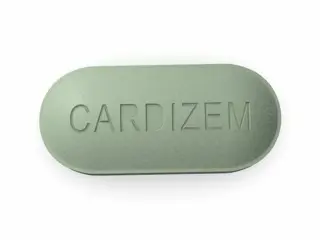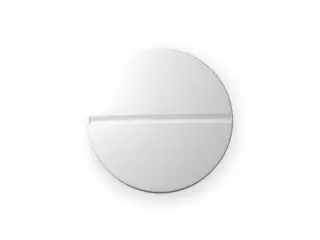Cardiovascular

Discover a wide selection of high-quality cardiovascular medications and supplements designed to support heart health, improve circulation, and manage blood pressure. Shop trusted brands to maintain a healthy cardiovascular system with confidence and ease.
The cardiovascular category includes essential medications used to treat various heart and blood vessel conditions. These drugs help manage blood pressure, prevent blood clots, regulate heart rhythm, and improve overall heart function. Below is a review of some popular medications commonly found in this category.
Altace (Ramipril) is an ACE inhibitor used to lower blood pressure and reduce the risk of heart attack or stroke. It works by relaxing blood vessels, making it easier for the heart to pump blood. Patients typically notice improvement in blood pressure within a few weeks. Side effects can include a dry cough, dizziness, or elevated potassium levels. Monitoring kidney function during use is advised.
Cardarone and Cordarone (Amiodarone) are widely used to control serious irregular heartbeats, such as atrial fibrillation or ventricular tachycardia. These drugs slow down the electrical signals in the heart to restore a normal rhythm. They are highly effective but require regular monitoring due to potential side effects like lung toxicity, thyroid problems, and liver inflammation. These medications should only be taken under strict medical supervision.
Cardizem (Diltiazem) is a calcium channel blocker prescribed to treat high blood pressure and certain types of angina (chest pain). It works by relaxing the muscles of the heart and blood vessels. Cardizem helps improve blood flow and reduces the heart's workload. Common side effects include swelling of the ankles, headache, and flushing. It is generally well-tolerated and suitable for long-term use.
Cartia XT (Extended-Release Diltiazem) offers a controlled release formula for better management of blood pressure and angina symptoms. Its once-daily dosing improves compliance. The mechanism and side effects are similar to Cardizem, focusing on heart and blood vessel relaxation to improve circulation.
Coumadin (Warfarin) is one of the most well-known blood thinners. It helps prevent the formation of harmful blood clots that could cause strokes or heart attacks. Warfarin requires frequent blood tests to monitor the international normalized ratio (INR), ensuring the dosage is correct. Diet and other medications can interfere with its effects, so patients need detailed guidance on managing their treatment safely.
Lanoxin (Digoxin) is used to strengthen heart contractions and control heart rate, especially in cases of heart failure and atrial fibrillation. It boosts the heart’s efficiency and improves symptoms like fatigue and shortness of breath. Because Lanoxin has a narrow therapeutic window, blood levels need close monitoring to avoid toxicity, which can cause nausea, vision changes, and arrhythmias.
Lisinopril is another ACE inhibitor similar to Altace. It lowers blood pressure and reduces strain on the heart. Lisinopril is effective in preventing strokes, heart attacks, and kidney problems in diabetic patients. Side effects are comparable to other drugs in this class, including cough and elevated potassium.
Micardis (Telmisartan) belongs to the angiotensin II receptor blocker (ARB) class. It lowers blood pressure by relaxing blood vessels. Micardis is effective for patients who cannot tolerate ACE inhibitors due to cough. It also provides protective benefits for the kidneys and heart. Side effects are usually mild, including dizziness and fatigue.
Nimotop (Nimodipine) is a calcium channel blocker used mainly to prevent brain damage caused by bleeding in the brain (subarachnoid hemorrhage). Nimotop specifically targets cerebral blood vessels, helping to keep them relaxed and reduce the risk of complications after a hemorrhage. Side effects may include low blood pressure and headache.
Plavix (Clopidogrel) is an antiplatelet medication that helps prevent blood clots by stopping platelets from sticking together. It is commonly prescribed after heart attacks, strokes, or stent placements to reduce the risk of further cardiovascular events. Plavix carries a low risk of bleeding but should be used cautiously alongside other blood thinners.
Samsca (Tolvaptan) is used to treat low blood sodium levels (hyponatremia), often associated with heart failure or liver disease. It works by increasing the amount of water excreted by the kidneys, helping to balance sodium levels. This medication requires monitoring of sodium levels and kidney function during treatment. Common side effects include increased thirst and dry mouth.
In summary, cardiovascular medications play a crucial role in managing heart disease and preventing complications. Each drug has its unique benefits and risks. Proper use under medical guidance is essential for safe and effective treatment. Patients should maintain regular follow-ups and report any side effects promptly to their healthcare provider.










